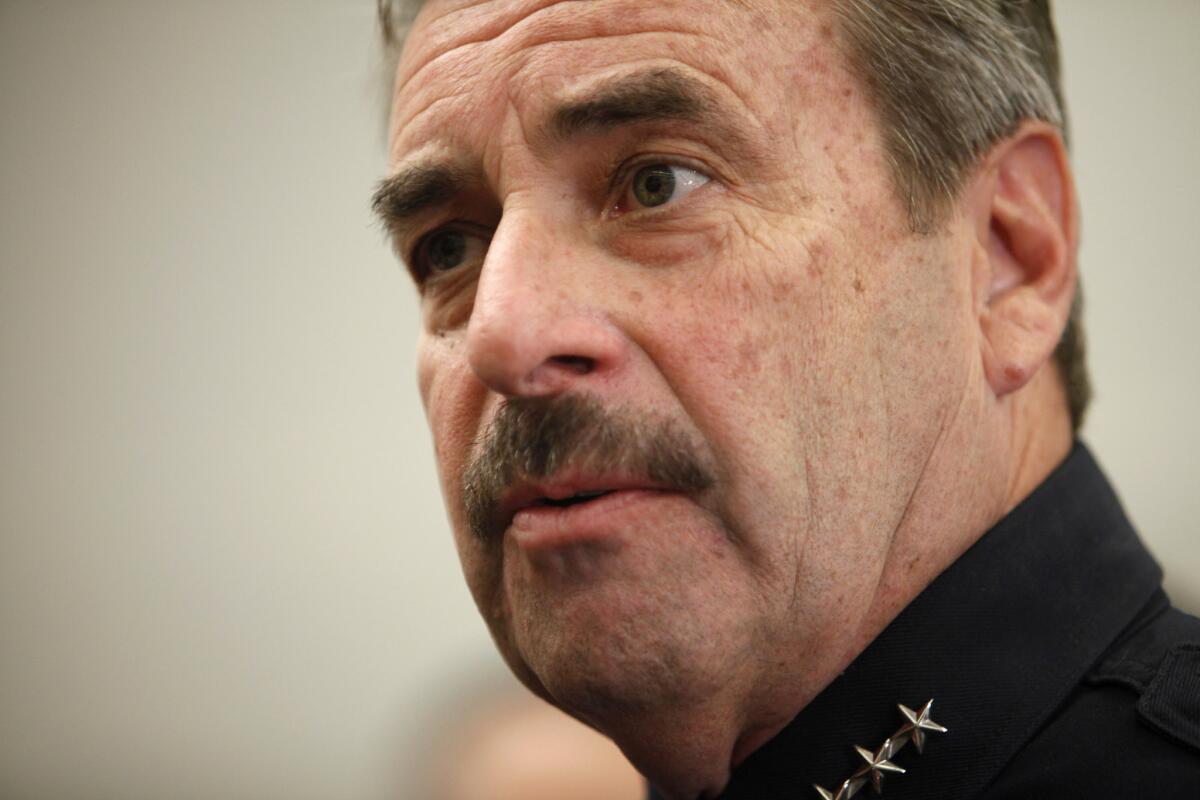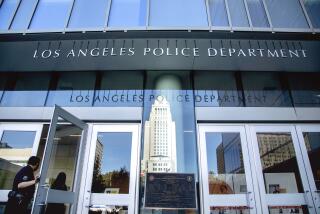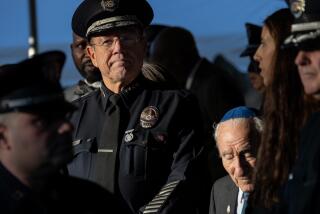LAPD to try voluntary mediation in racial profiling cases

The Los Angeles Police Department on Tuesday received the go-ahead to launch an experimental mediation program for racial profiling cases.
The three-year pilot program, approved Tuesday by the Police Commission, will give an officer accused of racial profiling and his accuser the option in some cases to meet face to face to discuss the encounter. Participation in the meetings will be voluntary for both sides, and neutral volunteers trained by city officials will mediate the sessions.
The goal, LAPD Cmdr. Rick Webb said, is to have officers and their accusers “stand in each others’ shoes.”
The initiative is the latest effort by LAPD officials to rethink the way the department addresses the common accusation that an officer targeted someone for a traffic stop or some other type of detention because of the person’s race.
The issue of racial profiling -- “biased policing,” in modern LAPD lingo -- has dogged the LAPD for years as it has tried to leave behind a reputation of racism and excessive force that remains entrenched in some minority communities.
Profiling complaints typically occur after a traffic or pedestrian stop, when the officer is accused of singling out a person solely because of his or her race, ethnicity, religious attire or some other form of outward appearance.
A few hundred such cases arise each year, but more damaging is the widely held belief, especially among black and Latino men, that the practice is commonplace.
Department records showed that in at least several thousand cases spanning many years, no officer had been found guilty of racial profiling in internal LAPD investigations.
That track record left members of the commission increasingly angry and incredulous. Their ire was inflamed by former LAPD Chief William J. Bratton, who held firm to the belief that there was little the department could do to investigate profiling cases because, he said, it was impossible to know what an officer was thinking at the time of a stop.
As pressure for change has mounted, Bratton’s successor, Charlie Beck, has overseen reforms on how racial profiling cases are handled. Instead of trying to decipher an officer’s bias and intentions, now a specialized team of investigators looks at whether officers in the most serious sounding cases violated a person’s constitutional rights.
That new approach has led police officials to find one officer guilty of racial profiling. That officer was fired by a discipline panel, although it is unclear whether the panel upheld the charge of racial profiling or fired the officer for a lesser infraction.
By contrast, the mediation program will be used in more run-of-the-mill profiling cases, in which there are no allegations of physical abuse, racial insults, or other serious misconduct, Webb told the commission.
If an officer is found to have participated in the mediation session in good faith, the department’s internal investigation into the allegations against the officer will be closed, Webb said. Officers with two prior complaints in the previous year will not be eligible.
A director from the union that represents LAPD rank-and-file officers told the commission Tuesday that the union supports the mediation plan and has instructed officers to participate.
Los Angeles is not the first city to try mediation to resolve friction between cops and the people they encounter. San Francisco, for one, has a long-running mediation program.
ALSO:
Officer engaged in racial profiling, LAPD probe finds
LAPD insists it’s tough when investigating racial profiling by officers
Twitter: @joelrubin
More to Read
Start your day right
Sign up for Essential California for news, features and recommendations from the L.A. Times and beyond in your inbox six days a week.
You may occasionally receive promotional content from the Los Angeles Times.







